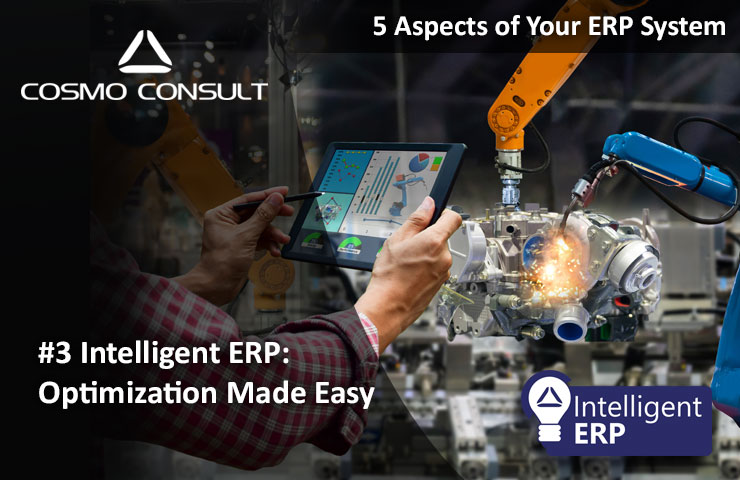Intelligent ERP: Optimization Made Easy

The term “intelligent ERP” is everywhere nowadays. But almost no one knows what it means. The explanation often involves other acronyms or Anglicisms, such as Internet of Things (IoT), Big Data, or Industry 4.0. But, what does intelligent ERP mean for German machine and plant manufacturers? What are the specific benefits?
Many Application Areas for Modern Technologies
Modern technologies have been used in machine and plant engineering for a long time. Artificial intelligence (AI) in particular has been strongly established in this field. Common applications include:
- Intelligent picking systems that collect goods from various warehouses independently and bring them to the production workstation using optimized routes;
- Sensors that measure the behavior of machines and systems as part of predictive maintenance in order to identify maintenance and service needs based on values such as speed, noise level, or operating temperature.
Another example is the area of e-invoicing, which is currently a primary focus in machine and plant engineering. Suppliers of larger corporations are coming under increasing pressure to process invoices electronically. Intelligent algorithms identify the documents automatically and process them digitally. Instead of relying on the old method of pre-defined formats, users can train these systems to identify even unusually structured documents reliably. According to Gartner, the integration of CAD and ERP is another important aspect for accelerating the “time-to-market”. This involves the system determining optimum machine allocation directly from the CAD model.
It Doesn’t Always Have to Be Expensive
Intelligent ERP doesn’t necessarily have to be a major project. On the contrary, modern technology can also be used in the environment of smaller, leaner solutions, for example to evaluate and analyze delivery times for materials. In this case, artificial intelligence (AI) detects deviations in existing data, takes influence factors into account, and calculates suggestions for optimum stock replacement. When performed periodically, this increases data quality and delivery reliability and results in better planning.
But back to invoicing: Why not optimize other areas according to the same principle? The same technology can be used in procurement for order confirmations or in servicing for electronic work slips. Although both of these examples use the cloud, they do not necessarily require the ERP system to be run in the cloud.
It Depends on the ERP System
Modern ERP solutions like the Dynamics365 product family from Microsoft also have the required functional spectrum to meet the requirements in machine and plant engineering. With the addition of cloud services, company software can easily be extended to include additional functions.
Would you like to know more? Leave us your contact details, give us a call, or send us an email. We’ll be happy to discuss how your company can benefit from an intelligent ERP system.
